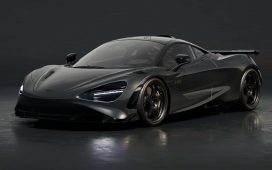Electric utility vehicle market to reach $24,976.5 million 2031
PORTLAND, OREGON, UNITED STATES, April 18, 2023 /EINPresswire.com/ — According to a new report published by Allied Market Research, titled, “Electric Utility Vehicle Market,” The electric utility vehicle market was valued at $8.59 billion in 2021, and is estimated to reach $24.98 billion by 2031, growing at a CAGR of 11.4% from 2022 to 2031.
Asia-Pacific is expected to dominate the global electric utility vehicle market in 2021. The growth of the electric utility vehicle market in Asia-Pacific is primarily driven by increase in demand for power sports recreational activities in many countries, including China, Australia, and India. Higher adoption rates of smart mobility services, government regulations, increase in fuel prices, and rise in trend toward adopting non-fossil fuel-based vehicles boost the growth of electric utility vehicles in developing countries, such as India, China, and Indonesia, which create lucrative opportunities for the market in the region. Consumer perception and willingness to purchase automobiles with new technologies increase the demand for these vehicles in the region.
The popularity of lithium-ion batteries is on an exponential increase, as they are light in weight, have high capacity, and have exhibited a sharp decline in price in recent years. Lead-acid batteries have drawbacks such as high self-discharging rates and relatively low charge/discharge cycles, which makes them less suitable for energy storage applications. Due to these drawbacks, electric utility vehicle manufacturers are utilizing lithium-ion batteries in electric utility vehicles. In addition, several manufacturers are innovating in lithium-ion batteries to provide fast charging in upcoming electric vehicle as well as electric utility vehicle.
𝐆𝐞𝐭 𝐚 𝐏𝐃𝐅 𝐒𝐚𝐦𝐩𝐥𝐞 𝐟𝐨𝐫 𝐈𝐧𝐝𝐮𝐬𝐭𝐫𝐢𝐚𝐥 𝐈𝐧𝐬𝐢𝐠𝐡𝐭𝐬 𝐚𝐧𝐝 𝐁𝐮𝐬𝐢𝐧𝐞𝐬𝐬 𝐈𝐧𝐭𝐞𝐥𝐥𝐢𝐠𝐞𝐧𝐜𝐞 @ https://www.alliedmarketresearch.com/request-sample/9983
By vehicle type, the global electric utility vehicle market is segregated into sport utility vehicle, multi utility vehicle, utility terrain vehicle, and others. Sports utility vehicle refers to the large vehicles that have four-wheel drive capabilities and are suitable for off-road driving. These vehicle can be used to drive over rough surfaces and conditions. These vehicle are larger than regular cars but have a much stronger, sporty look with easy driving motors. In addition, these vehicle usually are equipped with increased cargo storage, improved towing capacity, and off-road capabilities such as low-range gearing. Moreover, these vehicle are frequently utilized by people who live or work in areas with tough terrain such as farms, forest, deserts or snow-covered ground. Furthermore, electric vehicle manufacturers are now focusing on the development of e-SUVs owing to stringent environmental regulations. E-SUVs are powered by battery and have several advantages, such as low maintenance cost, safety features such as driver assistance, and low energy consumption with improved driving range.
The growth of the global electric utility vehicle market is propelling, due to launch of new and improved electric utility vehicle, stringent government rules and regulations toward vehicular emission, and increase in fuel costs. However, lack of charging infrastructure and limited driving range of electric vehicle hamper the growth of the market. Furthermore, technological advancements and proactive government initiatives are expected to offer growth opportunities during the forecast period.
COVID-19 Impact Analysis
The impact of the COVID-19 pandemic has resulted in supply-chain disruptions causing low sales of passenger cars and temporary suspension of production of vehicles across the globe, which in turn resulted in decrease in the demand for automotive across the globe. For instance, in 2020, global automobiles production recorded a drop of 16% in vehicle production. In addition, in March 2020, in India, Hyundai suspended manufacturing operations at its Chennai facility due to the COVID-19 pandemic.
𝐌𝐚𝐤𝐞 𝐚𝐧 𝐈𝐧𝐪𝐮𝐢𝐫𝐲 𝐁𝐞𝐟𝐨𝐫𝐞 𝐁𝐮𝐲𝐢𝐧𝐠- https://www.alliedmarketresearch.com/purchase-enquiry/9983
Several automobile manufacturers faced shortage of components, such as semiconductor chips, and others, which further resulted in delay in production of automobiles. For instance, in 2020, Nissan had to halt production for two days at a plant in Japan, which manufactures Serena and X-Trail models due to shortage of automotive parts. In addition, the COVID-19 pandemic also had an adverse effect on electric utility vehicle industry. As per the data released by Society of Electric Vehicle Manufacturers (SMEV), new EV registration of all types of electric vehicles during 2021 dropped by 20% as compared with the number of new EV registrations in 2020.
However, it is been predicted that though the sales of electric vehicles were hampered due to the pandemic for a short term, the industry is set to bounce back with the higher growth than that of the previous years, owing to the consistently rise in fuel prices and rising concerns towards environmental pollutions coupled with provision of the subsidies by various governments.
KEY FINDINGS OF THE STUDY
By battery type, the lithium-ion battery segment is anticipated to exhibit significant growth in the near future.
By vehicle type, the utility terrain vehicle segment is anticipated to exhibit significant growth in the near future.
By application, the agricultural segment is anticipated to exhibit significant growth in the near future.
By region, Asia-Pacific is anticipated to register the highest CAGR during the forecast period.
𝐏𝐮𝐫𝐜𝐡𝐚𝐬𝐞 𝐂𝐨𝐦𝐩𝐥𝐞𝐭𝐞 𝐑𝐞𝐩𝐨𝐫𝐭 𝐚𝐭- https://www.alliedmarketresearch.com/electric-utility-vehicle-market/purchase-options
Key players operating in the global electric utility vehicle market include, Alke, Bollinger Motors, Club Car, Columbia Vehicle, Ford Motor Company, General Motors Company, Hyundai, Mahindra Electric Corporation, Marshell, Neuron EV, Polaris, Star EV, Tesla, Toyota Motor Corporation, and Tropos Motor.
David Correa
Allied Analytics LLP
+1-800-792-5285
email us here









